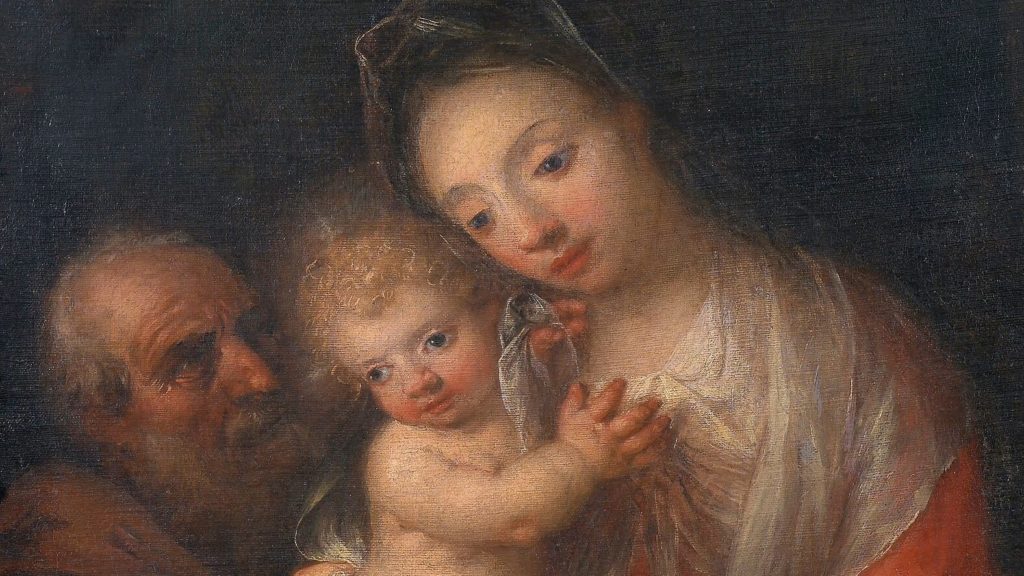In a section of her poem “The Leaf and the Cloud,” Mary Oliver describes her feelings as she stands by the gravesite of her father and mother. She reflects on how both their virtues and faults influenced her life. Then she ends the reflection with these words:
I give them — one, two, three, four — the kiss of courtesy,
of sweet thanks.
May they sleep well. May they soften.
But I will not give them the kiss of complicity.
I will not give them the responsibility for my life.
What shapes our souls? How much is mystery? How much is genetics? How much is the influence of others? How much is our own responsibility? For instance, when I reflect on what helped shape my own soul, the influence of my parents looms large.
Part of me is my mother. She was a sensitive person, someone who sometimes couldn’t say no when it was called for. So, she often found herself overstretched and tired. Today some would say that she didn’t keep proper boundaries. She had 16 children. Her critics can rest their case.
She was a generous person, always giving things away. As a child I was sometimes angry with her for that. I didn’t want a generous mother. I wanted things. What she wanted was harmony in her family. I remember her coming to tears one Saturday morning as she was cleaning the house and trying to keep peace and order in a family that, on that particular day, was given over to disorder and arguments. She told us how disappointed she was that our family wasn’t like the Holy Family.
We weren’t the Holy Family and she was sometimes frustrated, not so much with us as with the plain inadequacy of life. Beyond this, she was a happy person, more naturally buoyant in spirit than my father. She danced more easily than he, laughed more spontaneously, and was an easier touch for us as kids. She took life less reflectively than he, though not as unreflectively as we naively supposed. During one period of her life she kept a diary and it testified to the fact that she’d thought more deeply about things than we’d supposed.
Her deepest longing was for a true home and here she got lucky. She met my father. From soon after they met until the day he died, they became soulmates in every sense of that word. She didn’t have to tell him her secrets or share with him her frustrations, and neither did he in reverse. They understood each other without having to explain themselves. In all my years of growing up, I cannot ever recall them having a single misunderstanding or even being angry with each other.
My father died of cancer and she, who had been strong until his death, died three months later of pancreatitis and a loneliness nobody could cure. Today some would look at that and say she was a co-dependent. But she would laugh and tell you that she got what she wanted from life. She died of missing my father, died happy. There’s something to be envied in that.
I’m her son and when I contemplate these things, my own soul becomes less of a mystery, as do my struggles, my faults, my longings, and my strengths. I even understand why I’m tired a lot!
And then a good part of me is my father. There’s a lot in me that can be explained by my genes. My father didn’t dance easily, though he was a deeply affectionate man. Dancing was too public for him. He preferred to express affection in private. He loved my mother, his family, and most everyone, but his way was not to trumpet this in public. There was a reticence here that could sometimes look like coldness, but you had to read his actions and his eyes. They told a different story. He had an abhorrence of all exhibitionism, hated long ceremonies, and loathed cheap public displays of anything. He also disliked excess in anything. His was the way of moderation, proper restraint in everything. Our family likes to quip that moderation was his only excess.
He was the stubborn uncompromising moral principle in my upbringing. He agonized over all that was not right in the world and his patience didn’t always meet the test. I feared his eyes at those times when I disappointed him. I also feared, and still do, ever disappointing him. He was one of the most moral people I’ve ever met and he had a sixth sense that was nearly infallible. He knew right from wrong in a way I couldn’t doubt. He instructed me on that — often against my protests. If I end up in hell, I can’t plead ignorance. My father equipped me, faith-wise and morally, for life. But I have the faults that come with that too, his faults, compounded by my own.
So much of us, our strengths and weaknesses, take root in our upbringing — but still, we are responsible for our own lives.

